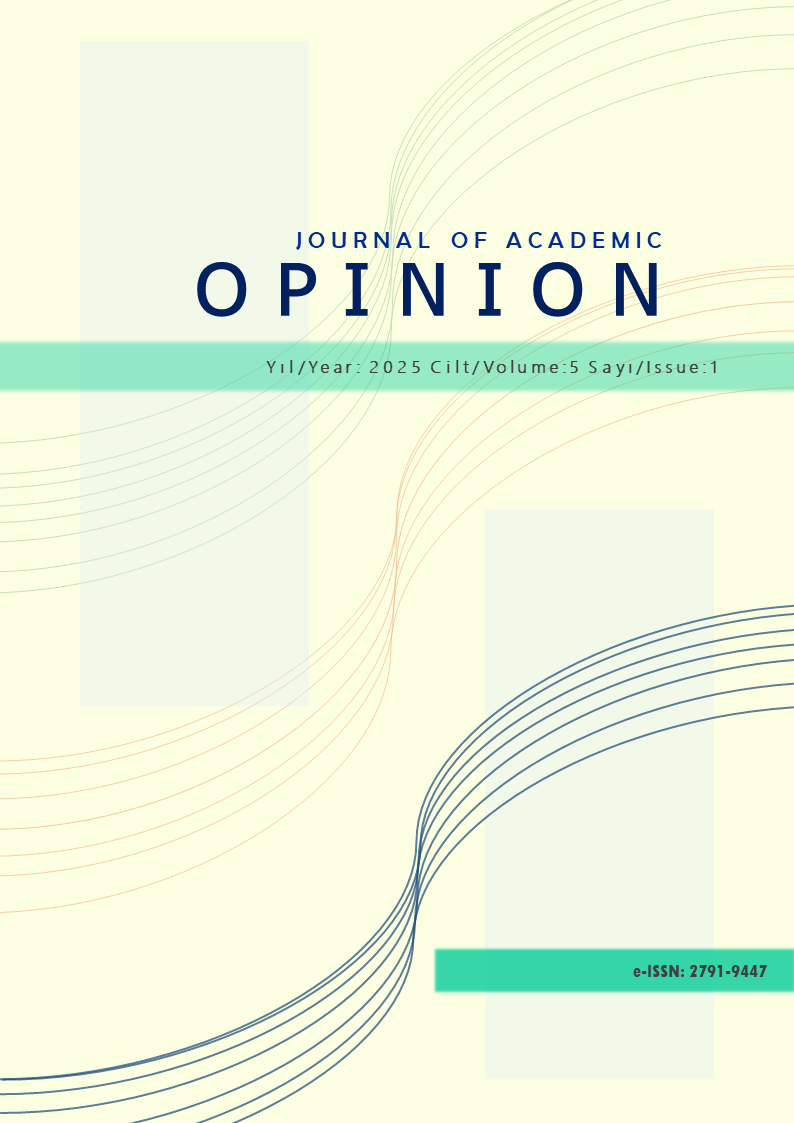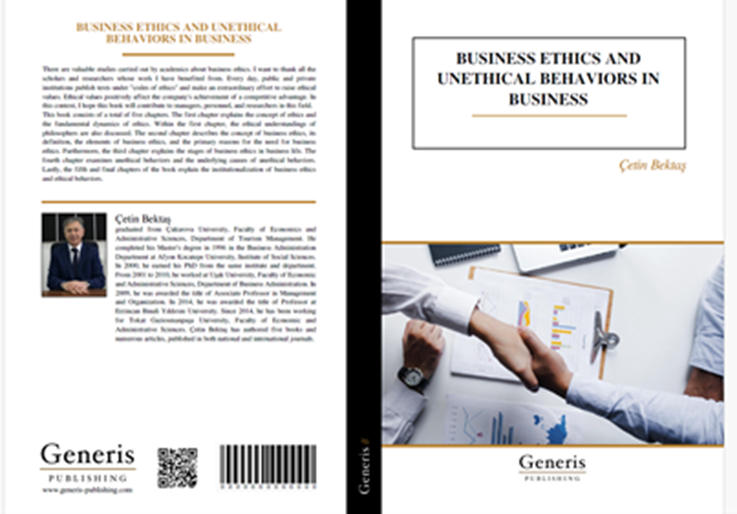Binek Araç Sahiplerinin Özel Tüketim Vergisi Algısı Üzerine Bir Değerlendirme
Anahtar Kelimeler:
Özel Tüketim Vergisi, Mali anestezi, Tüketici davranışları, Vergi algısıÖzet
Harcamalar (tüketim) üzerinden alınan vergiler nitelikleri itibariyle tahsil edilebilirliğinin kolay olması, fiyat içine gizlenebilmesi, vergi maliyetinin düşük olması, mali anestezi etkisi oluşturabilmesi ve bir takım sosyal amaçların gerçekleştirilebilmesi amacıyla kullanılabilmesi gibi nedenlerle Türkiye’de ve dünyada devletler açısından cazip bir kamusal finansman kaynağı ve sosyal politika aracı olarak görülmektedir. Harcamalar üzerinden tahsil edilen vergiler arasında yer alan Özel Tüketim Vergisi (ÖTV), negatif dışsallıkların içselleştirilmesi, toplum sağlığını olumsuz etkileyen ürünlerin tüketiminin kontrol altında tutulabilmesi, vergi adaletinin sağlanması gibi nedenlerle yaygın kullanıma sahip bir vergi türüdür. ÖTV, kapsamına dahil edilen ürünler ve bu ürünler üzerindeki vergilendirme oranları bakımından zaman zaman kamuoyunda tartışmalara neden olabilmektedir. Özellikle, belirli ürün gruplarındaki yüksek vergilendirme oranları hem tüketici davranışları hem de ekonomik dinamikler üzerindeki etkileri açısından yoğun bir şekilde eleştirilmektedir. Bu bağlamda, ÖTV’nin binek araçlar üzerinden tahsil edilen oran ve tutarlarının tüketiciler üzerindeki algısı ve bu algının tüketim kararlarına nasıl yansıdığı önemli bir araştırma konusu haline gelmiştir. Bu çalışma, bir harcama vergisi olarak ÖTV’ye yönelik mükellef algısını anlamayı, bu konuda yapılmış bilimsel araştırmaları değerlendirmeyi ve ÖTV’nin tüketim davranışları üzerindeki etkilerini çok boyutlu bir perspektifle ele almayı amaçlamaktadır. Araştırmada, ÖTV’nin ekonomik sonuçları, tüketicilerin tercih ve davranışlarındaki yönlendirici etkisi, aynı zamanda toplumsal kabul düzeyi incelenmiştir. Çalışmanın temel hedefi, ÖTV’nin yalnızca bir mali gelir kaynağı olarak değil, aynı zamanda ekonomik faaliyetleri ve toplumsal dinamikleri şekillendiren bir araç olarak oynadığı kritik rolü anlamaya yönelik katkı sağlamasıdır.
Referanslar
Akkaya, Ş. ve Aktuğ, M. (2021). Teorik Temelleri ve Gelişimi Bakımından Özel Tüketim Vergilerinin Analizi, Maliye Çalışmaları Dergisi, (65): 1-23
Bekleriş, İ. (2019). Dolaylı Vergilerin Tüketici Tercihleri Üzerindeki Rolü, Yüksek Lisans Tezi, Niğde: Niğde Ömer Halisdemir Üniversitesi Sosyal Bilimler Enstitüsü.
Cansız, H. (2015). Defterdarlık Çalışanlarının Vergi Algıları: Akhisar Örneği, Yönetim ve Ekonomi, 22(2): 434-450.
Chen, Y., Liu, H. and Xu, J. (2010). The Effect of Consumption Tax Changes on Car Sales: Evidence from China’s Automotive Industry. Journal of Economic Studies. 37(4): 432-447.
Çelikkaya, A. (2002). Mükelleflerin Vergiye Gönüllü Uyumunu Etkileyen Faktörler, e-akademi Hukuk, Ekonomi ve Siyasal Bilimler Aylık İnternet Dergisi, (5). Erişim Adresi http://www.e-akademi.org/makaleler/acelikkaya-1.htm, Erişim Tarihi (09.11.2024).
Çiçek, S. ve Sabbağ, J. (2016). Mükelleflerin Vergiden Kaçınma Algısı ve Demografik Belirleyicileri Üzerine Bir Araştırma: Isparta Örneği, Sosyoekonomi, 24(28): 43-64.
Edizdoğan, N. (2007). Kamu Maliyesi. Bursa: Ekin Kitabevi.
Edizdoğan, N., Çetinkaya, Ö. ve Gümüş, E. (2018), Kamu Maliyesi. Bursa: Ekin Basım Yayın Dağıtım.
Erdem, M., Şenyüz, D., Tatlıoğlu, İ. (2006). Kamu Maliyesi, Bursa: Ekin Basımevi.
Göde, B. (2022). Mali Anestezi ve Mali Aldanma Bağlamında Kamu Harcamalarının Finansmanının Vergi Bileşenleri Açısından Analizi, Tarsus Üniversitesi Uygulamalı Bilimler Fakültesi Dergisi, 2(1): 12-27.
Jimenez, P.and Iyer, G. (2016). Tax Compliance in Social Settings: The Influence of Social Norms, Trust in Government and Perceived Fairness on Taxpayer Compliance. Advances in Accounting, 34: 25.
Karakoç, Y. (2004). Genel Vergi Hukuku, Ankara: Yetkin Yayınları.
Kaneti, S. (1989). Vergi Hukuku. İstanbul: Filiz Kitabevi.
Kavaklı Demir, E. Ve Çelikay, F. (2020). Paternalist Anlayış Perspektifinden Erdemsiz Mallar ve Kamu Müdahalesi: Ampirik Bir Değerlendirme, Sosyal Ekonomik Araştırmalar Dergisi. 20(39): 53-69.
Kırcova, İ., Altınay, G., Onat, B. ve Şahin, Ü. A. (2012). Otomotiv Ticaretinde Yol Haritası Talep Tahmini 2012-2016. İstanbul: ODD Yayınları.
KPMG, (2015). Türkiye Otomotiv Sektöründe Yeni Stratejik Yatırım Hedefleri, KPMG Türkiye 2015 Otomotiv Yöneticileri Araştırması.
Oberholzer, R. and Stack, E. M. (2014). Perceptions of Taxation: A Comparative Study of Different Population Groups in South Africa, Repablic Relation Review, 40(2): 226-239.
Oladipupo, A. O. and Obazee, U. (2016). Tax Knowledge, Penalties and Tax Compiance in Small and Mecium Scale Enterprise in Nigeria, İBusiness, 8(1): 7-8.
Oktar, K. (2020). Özel Tüketim Vergisi, Ankara: Yeni Ekonomik Danışmanlık.
Önder, K. ve Şahin, M. (2018). Özel Tüketim Vergisi Artışlarının Hanehalkının Binek Otomobil Talebi Üzerine Etkisi: Panel Eşbütünlşme Analizi, Maliye Dergisi, 174: 337-359.
Özel Tüketim Vergisi Kanunu. (2002). Erişim Adresi https://www.mevzuat.gov.tr/mevzuatmetin/1.5.4760.pdf, Erişim Tarihi (10.10.2024)
Resmî Gazete, (2015). Özel Tüketim Vergisi (II) Sayılı Liste Uygulama Genel Tebliği. Erişim Adresi https://www.resmigazete.gov.tr/eskiler/2015/04/20150418-8.htm, Erişim Tarihi (08.07.2024).
Resmî Gazete, (2015). Özel Tüketim Vergisi (I) Sayılı Liste Uygulama Genel Tebliği. Erişim Adresi https://www.resmigazete.gov.tr/eskiler/2015/03/20150305-16.pdf, Erişim Tarihi (05.07.2024).
Resmî Gazete, (2015). Özel Tüketim Vergisi (III) Sayılı Liste Uygulama Genel Tebliği. Erişim Adresi https://www.resmigazete.gov.tr/eskiler/2015/08/20150808-15.htm, Erişim Tarihi (08.07.2024).
Resmî Gazete, (2015). Özel Tüketim Vergisi (IV) Sayılı liste Uygulama Genel Tebliği. Erişim Adresi https://www.resmigazete.gov.tr/eskiler/2015/08/20150820-6.htm, Erişim Tarihi (08.07.2024).
Şanver, C., Ayas, I. Ve Topalfakıoğlu, N. M. (2017), Mükelleflerin Özel Tüketim Vergisinde Yapılan Değişikliklere Tepkileri, Adnan Menderes Üniversitesi Sosyal Bilimler Enstitüsü Dergisi, 4(4): 214-231.
Türen, R. (2021). Lüks Mal ve Hizmetler Çerçevesinde Türkiye’deki Özel Tüketim Vergisinin Değerlendirilmesi. Yüksek lisans Tezi. Isparta: Süleyman Demirel Üniversitesi Sosyal Bilimler Enstitüsü.
Türkiye İstatistik Kurumu (2024). Trafiğe Kayıtlı Motorlu Kara Taşıtları, Nisan 2024. Erişim Adresi https://data.tuik.gov.tr/Bulten/Index?p=Motorlu-Kara-Tasitlari-Nisan-2024-53456#:~:text=Nisan%20ay%C4%B1%20sonu%20itibar%C4%B1yla%20trafi%C4%9Fe%20kay%C4%B1tl%C4%B1%2015%20milyon%20562%20bin,%250%2C2'dir, Erişim Tarihi (05.07.2024).
Ülgen, G. (2007). İktisat Bilimine Giriş, İstanbul: Der Yayınları
Ülgen, S. (2024). Türkiye’de Otomotiv Sektöründe Özel Tüketim Vergisi İndirimlerinin Vergi Gelirleri üzerine Etkisi: Ampirik Bir Değerlendirme, Doktora Tezi. Ankara: Hacettepe Üniversitesi Sosyal Bilimler Enstitüsü.
Yavuz, H. (2017). Otomobil Alımında Özel Tüketim Vergisinin Etkisi ve ÖTV Bilinci, International Journal Of Eurasia Social Sciences, 8(26): 373-389.
Yılmaz, M. (2024). Türkiye’de Mükelleflerin Özel Tüketim Vergisi Oran ve Matrah Değişimlerine Tepkileri: Alanya ilçesi Motorlu Taşıtlar ve Beyaz Eşya Tüketicileri Üzerindeki Etkilerinin Ölçülmesi, Yüksek Lisans Tezi. Antalya: Akdeniz Üniversitesi Sosyal Bilimler Enstitüsü.
İndir
Yayınlanmış
Nasıl Atıf Yapılır
Sayı
Bölüm
Lisans
Telif Hakkı (c) 2025 Journal of Academic Opinion

Bu çalışma Creative Commons Attribution 4.0 International License ile lisanslanmıştır.





